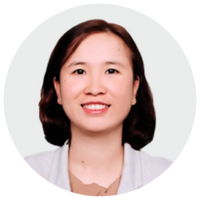Vietnam's citizens are becoming both older and wealthier and as a result, the market for senior care services is growing rapidly. Here’s what foreign enterprises should know when considering entering the aged care market in Vietnam.
Vietnam’s population is aging rapidly due to declining mortality and fertility rates. In 2020, the proportion of individuals aged 65 and above accounted for 8 percent of the population, but by 2036, it is estimated that number will jump to 14 percent.
The Ministry of Labour, Invalids, and Social Affairs estimates that approximately 4 million elderly people required daily care in 2019, and this number is expected to increase to about 10 million by 2030.
The rising demand for elderly care services presents numerous investment and business opportunities for domestic and foreign businesses and investors. Currently, elderly care is primarily reliant on family members, but this support is insufficient due to low birth rates, work and study schedules, and the lack of expertise, professional skills, and psychological understanding required for elderly care.
With this in mind, foreign firms in the aged care sector should be looking at Vietnam as a core market with an abundance of growth opportunities. This article endeavors to outline these opportunities and the key details foreign aged care homes should know when considering entering Vietnam’s aged care sector.
Understanding Vietnam's senior care market
The World Health Organisation predicts that 80 percent of the global geriatric population will reside in low and middle-income countries by 2050. A sizable portion of this will be located in Southeast Asia and will need support services.
According to the VCCI's Elderly Care Service Market Outlook Report in Vietnam, the country has a promising market for elderly care services, with 20 million potential customers by 2035. This is in line with the fact that about 80 percent of older persons in Vietnam currently need help with daily living activities and receive care from another person.
Older persons in Vietnam, however, are reluctant to seek out this support through professional institutions.
Approximately 90 percent of older people and 92 percent of those needing assistance with activities of daily living want to receive care at home, with low rates of institutional care for both groups. Furthermore, about 36 percent of older people and their families are willing to pay for aged care services.
The assisted living market in Vietnam and investment opportunities for foreign investors
Medical care network
By 2019, according to data from the National Committee on the Elderly, the number of hospitals and departments specializing in geriatrics across the country is inadequate compared to the increasing number of older people. There is still only one hospital in the country exclusively serving the elderly, the National Geriatric Hospital. Furthermore, only 49 out of 62 provinces have geriatric departments at provincial general hospitals.
As of 2019, there were 106 geriatric departments at provincial and municipal general hospitals and central hospitals; around 900 outpatient departments with designated rooms for the elderly; around 10,000 inpatient beds prioritized for the elderly; and just shy of 2,000 medical staff trained in geriatrics. Interviews with experts revealed that even in hospitals with Geriatrics Departments, the professionalism of not only facilities (layout, equipment) but also the medical staff is limited.
Nursing homes
Vietnam's private nursing market is still in its early stages, but there is a rise in private services and government recognition of the need for policies to support the aging population. As of December 2020, Vietnam had 80 private nursing centers. Many facilities, however, only offer basic care services, which fall short of meeting the increasing demands of the population.
Furthermore, Confucian principles and rituals have influenced the government's approach, emphasizing family cohesion and self-care at home across generations. Although policy changes and a 10-year plan have been implemented, most care responsibilities still rest with families and community groups.
The government aims to establish at least one institute in each province by 2025, but this may not adequately address the rapid aging of the population. An alternative that has been floated is the Intergenerational Self-Help Club (ISHC) model, which empowers communities to care for the elderly at home with the assistance of volunteers.
Foreign retirees in Vietnam
A second market that could prove lucrative is providing retirement options in Vietnam for foreign retirees.
According to Travel + Leisure, Vietnam is a very affordable retirement destination, particularly for retirees who appreciate its beaches, scenery, food, history, and culture. The cost of living is 49 percent lower than in the United States, and rents are 75 percent lower depending on the location. Ho Chi Minh City, home to the largest expat community, has a cost of living 62 percent lower than in New York and housing costs that are 83 percent lower.
Most expats and retirees rent, as the government owns all land, and foreigners are restricted from purchasing property. Obtaining a visa is not as straightforward in Vietnam, but long-term stays or business visas are possible. High-quality healthcare is available in both public and private systems, with most expats carrying international health insurance and using private hospitals.
Healthcare tourism in Vietnam
Healthcare tourism in Vietnam has experienced significant growth, resulting in the creation of numerous appealing tourism products. Some of the most popular healthcare tourism products include mineral water treatments, spas, and resort experiences. Hot springs in Vietnam are being developed and managed by significant investors, such as the Quang Hanh and Thanh Thuy hot springs, and the My Lam Tuyen Quang hot springs resort.
Spa tourism and resort experiences have emerged as a novel form of healthcare, encompassing healthcare education, exercise, diet, and therapeutic treatments. Vietnam boasts 38,000 tourist accommodation establishments with over 780,000 rooms, with 90 percent resuming normal operations after the COVID-19 pandemic. Among these, 561 are 4-5 star tourism facilities, including 180 resort hotels that offer spa activities and healthcare programs.
Traditional medicine tourism has also gained interest, with programs focusing on acupuncture and health improvement being developed. Bao Long Medical Resort in Son Tay, Hanoi, offers a tourism model that combines medical examinations and treatments, offering visitors a garden of rare and precious medicinal plants and a drug supermarket containing thousands of oriental medicinal products.
Nevertheless, these achievements do not fully reflect the immense potential that exists. Healthcare tourism products are limited in number and diversity, and there are relatively few establishments of sufficient scale and quality to accommodate guests, especially high-paying tourists.
The majority of healthcare tourism service providers are constrained in size, human resources, and technical amenities, and primarily cater to the basic needs of tourists. Moreover, the wealth of medicinal plants and renowned traditional medicine in Vietnam has yet to be fully tapped to bolster the development of traditional healthcare tourism.
Regulatory environment and investment incentives
Legal frameworks
The Ministry of Health has issued Decision 403/QD-BYT for the Action Plan for Elderly Health Care by 2030. This decision lays out a framework for monitoring and evaluating progress in managing Vietnam’s aging population. The Law on the Elderly, approved by the National Assembly in 2009, also recognizes the role and protection of legal rights for older persons.
Articles 15 and 20 of the Law on Elderly 2009 outline regulations for investment in older persons' care facilities, guided by Decree 68/2008/ND-CP. These regulations have been amended by Decree 81/2012 and 103/2017/ND-CP23. Decree 140/2018/ND-CP amended articles on the establishment, reorganization, dissolution, registration, and change of operation contents. Although the word "condition" has been removed, Decree 103/2017/ND-CP still maintains specific regulations and conditions for facilities and staff. These are the current basic conditions and criteria applied to elderly care facilities and nursing centers.
Guiding circulars
Circular 35/2011/TT-BYT, in 2011, established the regulations for the medical examination and treatment of older persons in general, specialized, and traditional medicine hospitals. These regulations encourage the establishment of geriatric departments with adequate facilities, equipment, and human resources. The regulations also guide commune, ward, and town health stations to organize medical examinations and treatment for older persons.
Circular No. 96/2018/TT-BTC, issued on October 18, 2018, details funding sources, management methods, and the use of funds for primary healthcare for older persons at their residences. The House-call Doctor Project model was implemented in 2013 and such services were expanded and better promoted after the pandemic. The market for home care services of private facilities is also developing.
Social worker training, nursing care
In 2015, Circular No. 30/2015/TTLT-BLDTBXH-BNV established standards for public employees specializing in social work. In 2017, 20 vocational training schools were established, training 13,400 people. Vietnam has also established a network of qualified caregivers to provide direct care for older people at hospitals and homes. However, the ratio of doctors/nurses and technicians is about 1:1.3, leading to patients' family members taking care of older people themselves.
Vietnam offers nursing training programs for older people and has exported nurses to Japan and Germany. Graduates gain knowledge in medical care, nutrition, food safety, support, chronic disease prevention, daily personal hygiene, and rehabilitation care.
Health care programs for the elderly
The Prime Minister's Decision 1579/QD-TTg approves the Health Care Program for Older Persons until 2030, promoting healthcare for older persons. The program includes informing them about their right to healthcare, conducting health examinations, monitoring non-communicable diseases, providing self-care knowledge, developing intergenerational self-help clubs, piloting day care centers, expanding nursing centers' networks, and expanding communes, wards, and towns.
Hospital capacity building and a network of volunteers are crucial for medical examinations, treatment, rehabilitation, and technical support. Models for daycare centers, communes, wards, and towns are being developed, and information technology is being applied to healthcare services for older persons. Training is essential for those in charge of older persons' healthcare at all levels, including healthcare facilities, population officers, and grassroots volunteers.
Key takeaways
Vietnam's booming senior care market offers an array of lucrative opportunities for foreign investors seeking to capitalize on the country's rapid demographic shift and growing demand for quality elderly care services. The country's robust economic growth and favorable government policies create an environment conducive to establishing successful ventures in assisted living and retirement facilities.
Additionally, Vietnam's rich cultural heritage, diverse landscapes, and warm hospitality present an inviting backdrop for retirees and tourists seeking a vibrant and fulfilling life during their golden years. The availability of natural resources, mineral waters, medicinal plants, and traditional medicine further adds to the potential for innovative and holistic healthcare tourism offerings.
As the demand for elderly care services continues to soar, the time is ripe for foreign investors to embark on a transformative journey in Vietnam's senior care sector. By combining innovation, cultural sensitivity, and a dedication to enriching the lives of senior citizens, investors can not only yield promising financial returns but also contribute to the well-being and happiness of the aging population in Vietnam.









